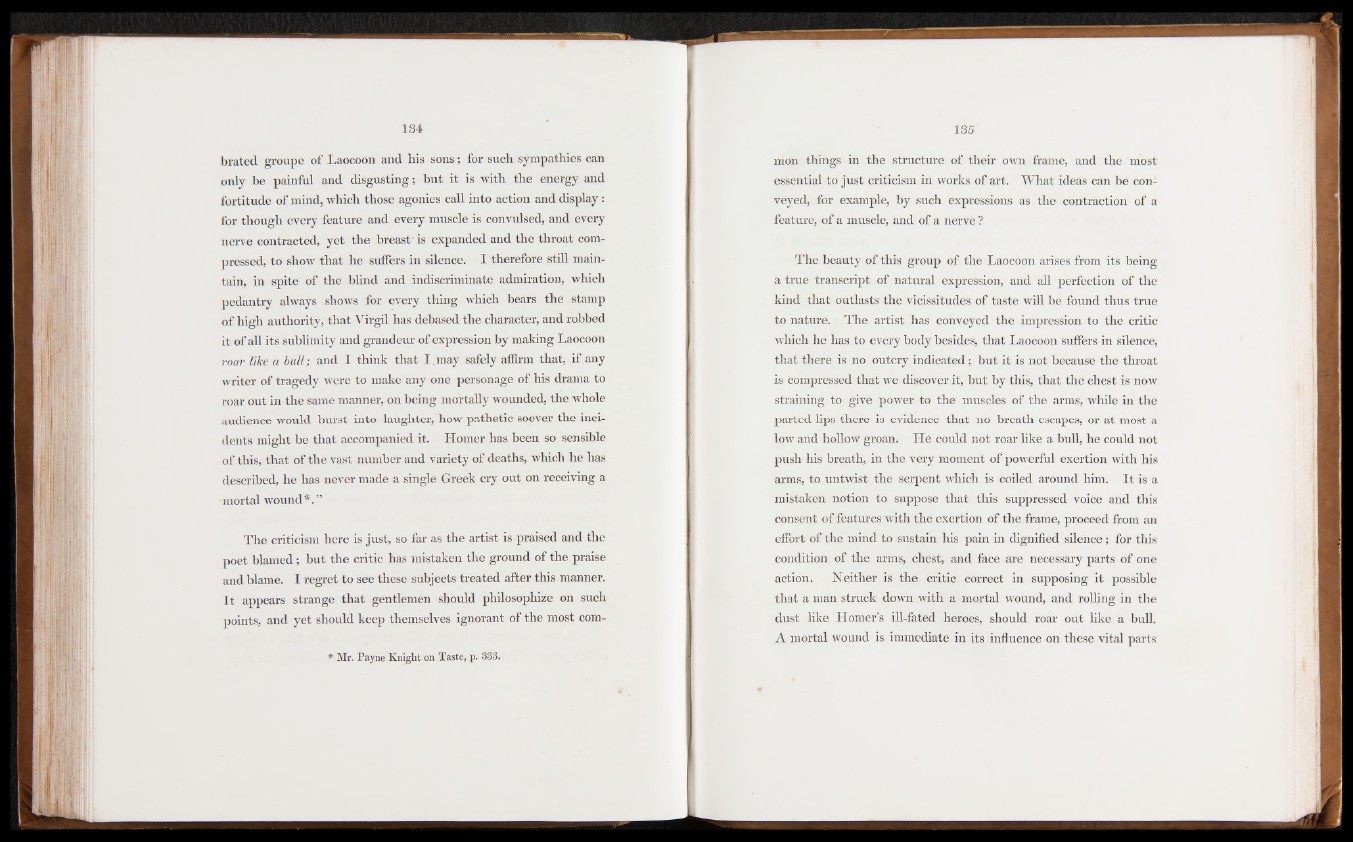
brated groupe of Laocoon and his sons; for such sympathies can
only be painful and disgusting; but it is with the energy and
fortitude of mind, which those agonies call into action and display:
for though every feature and every muscle is convulsed, and every
nerve contracted, yet the breast' is expanded and the throat compressed,
to show that he suffers in silence. I therefore still maintain,
in spite of the blind and indiscriminate admiration, which
pedantry always shows for every thing which bears the stamp
of high authority, that Virgil has debased the character, and robbed
it of all its sublimity and grandeur of expression by making Laocoon
roar like a bull; and I think that I.may safely affirm that, if any
writer of tragedy were to make any one personage of his drama to
roar out in the same manner, on being mortally wounded, the whole
audience would burst into laughter, how pathetic soever the incidents
might be that accompanied it. Homer has been so sensible
of this, that of the vast number and variety of deaths, which he has
described, he has never made a single Greek cry out on receiving a
■ mortal wound*.”
The criticism here is just, so far as the artist is praised and the
poet blamed; but the critic has mistaken the ground of the praise
and blame. I regret to see these subjects treated after this manner.
It appears strange that gentlemen should philosophize on such
points, and yet should keep themselves ignorant of the most com-
Mr. Payne Knight on Taste, p. 338.
mon things in the structure of their own frame, and the most
essential to just criticism in works of art. What ideas can be conveyed,
for example, by such expressions as the contraction of a
feature, of a muscle, and of a nerve ?
The beauty of this group of the Laocoon arises from its being
a true transcript of natural expression, and all perfection of the
kind that outlasts the vicissitudes of taste will be found thus true
to nature. The artist has conveyed the impression to the critic
which he has to every body besides, that Laocoon suffers in silence,
that there is no outcry indicated; but it is not because the throat
is compressed that we discover it, but by this, that the chest is now
straining to give power to the muscles of the arms, while in the
parted lips there is evidence that no breath escapes, or at most a
low and hollow groan. He could not roar like a bull, he could not
push his breath, in the very moment of powerful exertion with his
arms, to untwist the serpent which is coiled around him. It is a
mistaken notion to suppose that this suppressed voice and this
consent of features with the exertion of the frame, proceed from an
effort of the mind to sustain his pain in dignified silence; for this
condition of the arms, chest, and face are necessary parts of one
action. Neither is the critic correct in supposing it possible
that a man struck down with a mortal wound, and rolling in the
dust like Homer’s ill-fated heroes, should roar out like a bull.
A mortal wound is immediate in its influence on these vital parts